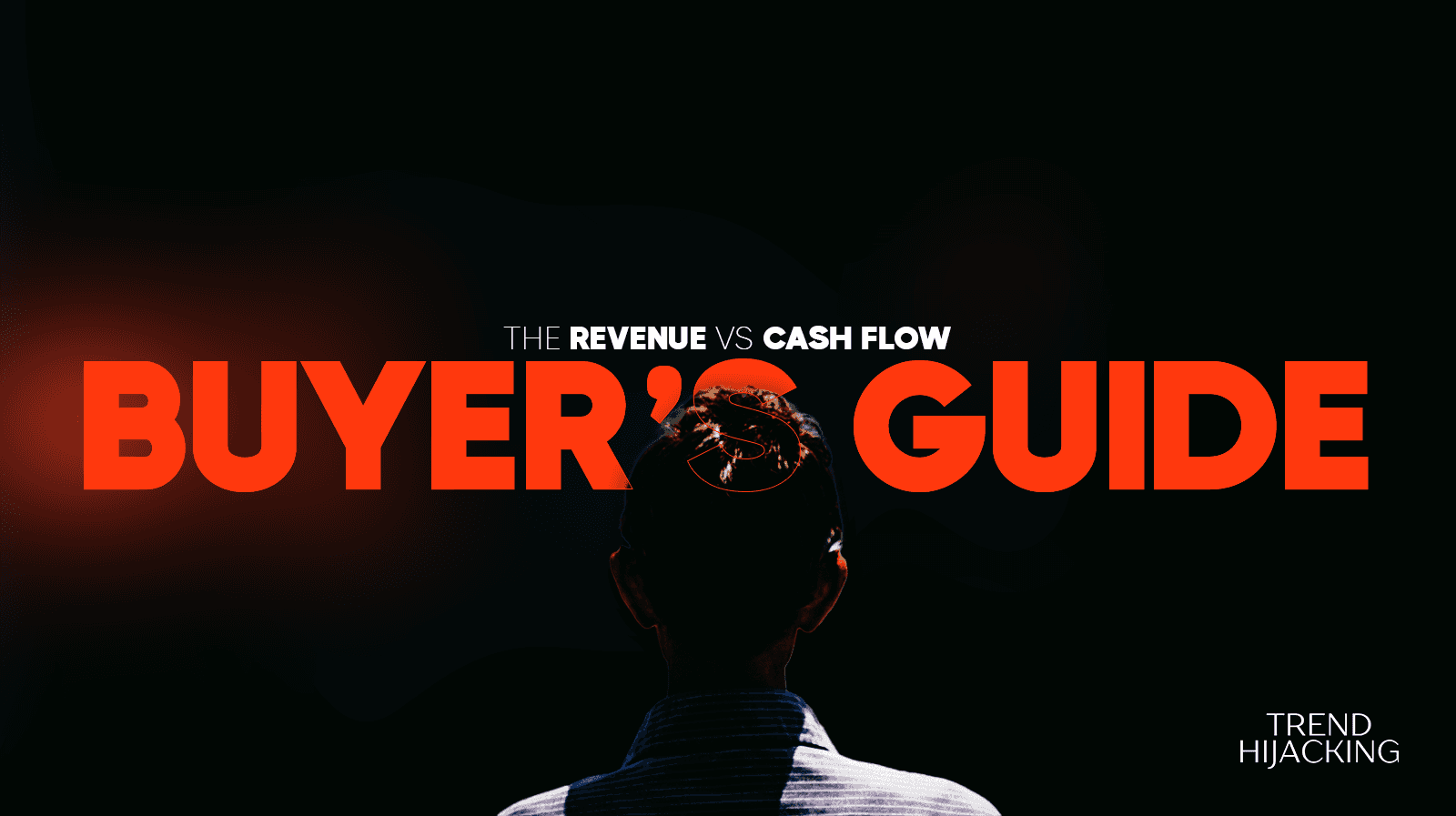
8 Questions To Ask Before You Buy An E-commerce Store
You’re thinking about buying an e-commerce store.
Maybe it’s already making money.
Maybe it fits your niche.
Maybe it just looks like a shortcut to building your own store from scratch.
But BEFORE you hand over any cash, you need to slow down...
A store might look great on the outside, but its numbers and operations might tell a different story.
Buying an online store is not just about getting a website.
You are buying into its customers, its products, its traffic sources, its systems, and its risks.
Therefore;
If you don’t ask the right questions, you could miss something big.
This article will walk you through the key questions you need to ask before acquiring an e-commerce store.
These questions will help you understand what you’re buying, how it works, and whether it's worth the money.
1. What Are the Store’s Real Financials?

One of the most important questions you should ask when buying an established e-commerce store is its financial health.
Specifically, you should ask for audited financial statements for the last three years.
Why is this crucial?
You want to get a clear picture of the store’s revenue trends, profit margins, and expenses.
According to this market update, global e-commerce sales grew 9.6% year over year to $6.91 trillion in 2024 and are projected to hit $7.528 trillion (an equivalent of 8.9%) by 2025. (Source).
You, therefore, need to confirm if the store’s growth matches or exceeds these industry averages.
Next, you’ll need to request a breakdown of fixed and variable costs.
This helps you evaluate the store’s profitability under different scenarios.
Also, ask for details on the owner’s benefit or seller’s discretionary earnings to see actual cash flow.
Finally, ask the seller if any existing debt or liabilities might transfer with the business.
We Help You Buy / Build, Manage and Scale E-commerce Brands for an EXIT
E-commerce Simplified for Busy Individuals – We handle the buying, building, and scaling, so you can focus on what matters.
Growth-Focused Strategies – From sourcing to marketing, we drive growth and prepare you for a profitable exit.
Expertly Managed Exits – We build a high-value brand designed for a Lucrative exit.
2. Where Does the Traffic Come From?

Understanding how customers find the store is another vital area to consider when doing due diligence.
Here, you want to ask the seller what percent of their store traffic comes from paid ads versus organic search.
A channel mix skewed toward paid channels can mean high ongoing costs.
You should also ask about customer acquisition cost (CAC) and lifetime value (LTV).
A recent study found that e-commerce brands lose an average of $29 for every new customer acquired.
This simply emphasizes the importance of customer retention in the e-commerce business.
Don’t forget to inquire about email list size and engagement, since email marketing can significantly lower CAC over time.
Finally, ask for traffic analytics access to help you confirm the visitor sources, bounce rates, and key landing pages.
3. What Does the Day-to-Day Operation Look Like?

You must also take the time to understand how the store runs day to day.
Ask what the owner does every day:
Do they pack and ship products?
Do they answer customer emails?
Do they manage ads or run social accounts?
You need a clear picture of the work involved.
Who handles customer service, order fulfillment, and returns?
Does the seller use a third-party logistics provider or fulfill in-house?
You need to know if existing systems can scale with growth.
Next, verify the store’s platform and technology stack.
Ask if the store is based on custom code or popular platforms like Shopify or WooCommerce.
Ask about its plugin lists, integration points, and hosting details.
You should also ask about the developer team, ongoing maintenance costs, and any known technical debts.
4. What Is the Growth Potential?

You also want to know if the business you plan to buy has room to grow.
Ask the seller what plans they have for the store’s future growth.
Maybe they were planning to expand to new markets, launch more products, or try new marketing channels.
Look at competitors. Are they growing? What are they doing differently?
You don’t need to match them right away, but you should know what’s possible if you invest time and money into the store.
5. Who Owns the Assets and Are They Transferrable?

Make sure the seller actually owns the things they are selling. This includes the following:
Domain name
Product photos
Website theme
Email list
Any supplier contracts
If the products are private-label or custom-made, ask if you will get full rights to sell them.
Check if the brand name is trademarked and if that trademark is included in the sale.
Also, make sure you get the login info for all accounts, including email marketing tools, payment processors, and ad accounts.
We Help You Buy / Build, Manage and Scale E-commerce Brands for an EXIT
E-commerce Simplified for Busy Individuals – We handle the buying, building, and scaling, so you can focus on what matters.
Growth-Focused Strategies – From sourcing to marketing, we drive growth and prepare you for a profitable exit.
Expertly Managed Exits – We build a high-value brand designed for a Lucrative exit.
6. What’s The Inventory Situation?

If you’re looking at a store that sells physical products, be sure to enquire how much inventory it has and where that inventory is stored.
Ask the seller for a full list of current stock, including costs and retail value.
Then ask which items sell the fastest and which ones move slowly.
Also, check if the inventory is included in the asking price or if you’ll need to buy it separately.
One more thing…find out how the store orders inventory:
Do they work with local suppliers, dropshippers, or overseas factories?
Ask how long it takes to restock and whether suppliers are reliable.
7. Ask The Owner Why They’re Selling

Well, this question feels awkward, but it’s an important part of due diligence.
Sometimes people sell businesses because they are ready to move on.
But sometimes, they’re trying to get out before things get worse.
Understanding the seller’s motivation can reveal hidden issues.
Ask directly why they are selling the store.
A genuine reason, such as a new venture or retirement, is less worrying than vague explanations.
If they say “burnout,” ask what part of the business was most stressful.
If they say “new opportunity,” ask what they plan to do next.
If their answers are vague or don’t match the data you’ve seen, be cautious.
Also, ask how long the owner has been running the business. If they only owned it for a few months, that could be a red flag!
Related: 7 E-commerce Acquisition Mistakes That Can Kill Your Investment
8. What Support Will I Get After the Sale?

A smooth transition can make a big difference in an e-commerce business acquisition.
Ask if the seller will help you learn the systems and meet key contacts after the transfer of ownership.
Some sellers will offer you 30 to 60 days of support after closing, which is enough time to get you started.
The support a seller offers might include calls, training, or email access.
Ask if the seller will introduce you to their suppliers, freelancers, or key customers.
The more help you get from the previous owner early on, the faster you can start running the store on your own.
Final Thoughts
You now have a roadmap of questions to ask before acquiring an e-commerce store. Verify financials, traffic sources, customer retention, operations, legal issues, inventory, seller motivation, and growth prospects.
Each question gives you facts to value the business and plan a smooth handover. By doing this thorough due diligence, you reduce risks and boost your chances for success.
If you’re ready to acquire a profitable e-commerce business with strong growth potential, visit our Acquisition Partnership program to see how we help you find great deals and grow your store 2–4x, positioning you for a strong exit.
A Done-For-You E-commerce Business
Discover how we Build, Launch, and Scale a 6-figure/month Business for You
Learn more
The 6-Step Blueprint to E-Commerce Acquisition
See how we Acquire, Convert, and Scale with Real Case Studies to Prove It.



















